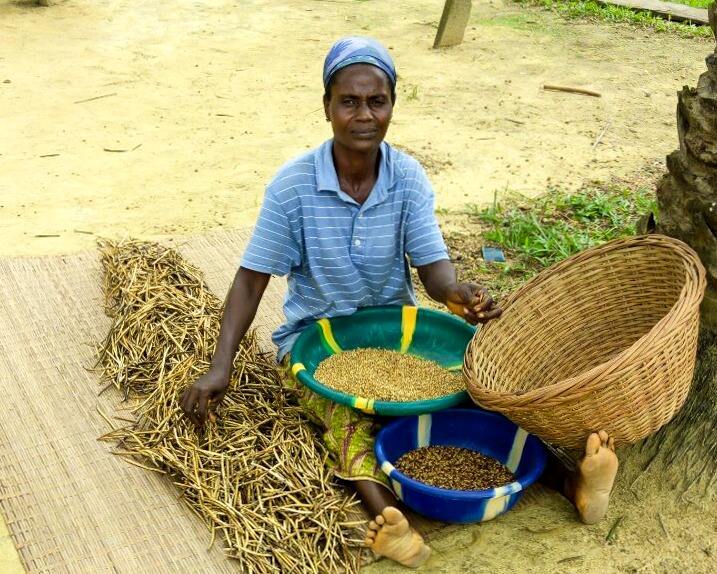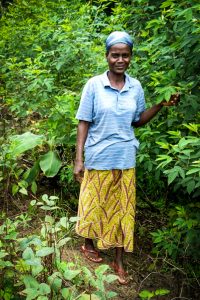
Ma Rebecca Giahdyuway, a 47-year-old mother of 10 and member of the Ahnawon Farmers’ Group in the Matro Community Forest area of Liberia’s Grand Bassa County, has a two-acre farm, where she grows cowpeas intercropped with plantains. She planted pigeon pea around the borders of her field to promote farm zoning and to have a crop to sell and consume during the dry season. Ma Rebecca learned these techniques from trainings offered by the USAID-funded Forest Incomes for Environmental Sustainability (FIFES) project. She is also the only female elected to serve on the Matro Community Forest Management Body.
Many Liberian farmers practice shifting cultivation, a practice of mainly growing upland rice intercropped with vegetables that helps combat poor soil fertility. Unfortunately, the practice often leads to deforestation. In the past, when there was less population growth and competing land uses, the practice improved productivity and biodiversity. But as fallow periods became shorter, it started putting more pressure on forest landscapes. The FIFES project has been working to combat this trend since 2015 and help Liberian farmers conserve their forests.
“With FIFES, [they] started giving us ideas to do farming as a business and plant in one place with different crops and not to move into the forest, and this idea is really helping us.” — Ma Rebecca Giahdyuway, a FIFES participant

Inspired by trainings on Better Management Practices (BMPs), Ma Rebecca intends to diversify her crops by adding pineapple, papaya, African eggplant, and hot pepper, while still growing pigeon peas and cowpeas to increase soil nitrogen fixation and improve soil fertility. The FIFES-supported Forestry Training Institute interns are helping Ma Rebecca identify tree species to plant on her farm for long-term economic and ecological benefits.
The project works with over 100 rural communities that manage 11 community forests in Nimba and Grand Bassa counties with the goal of developing forest-based business and improving their value chains. By doing so, FIFES creates inclusive and sustainable economic opportunities for farmers in forest-dependent communities, like Ma Rebecca, in ways that also prevent deforestation and biodiversity loss.





